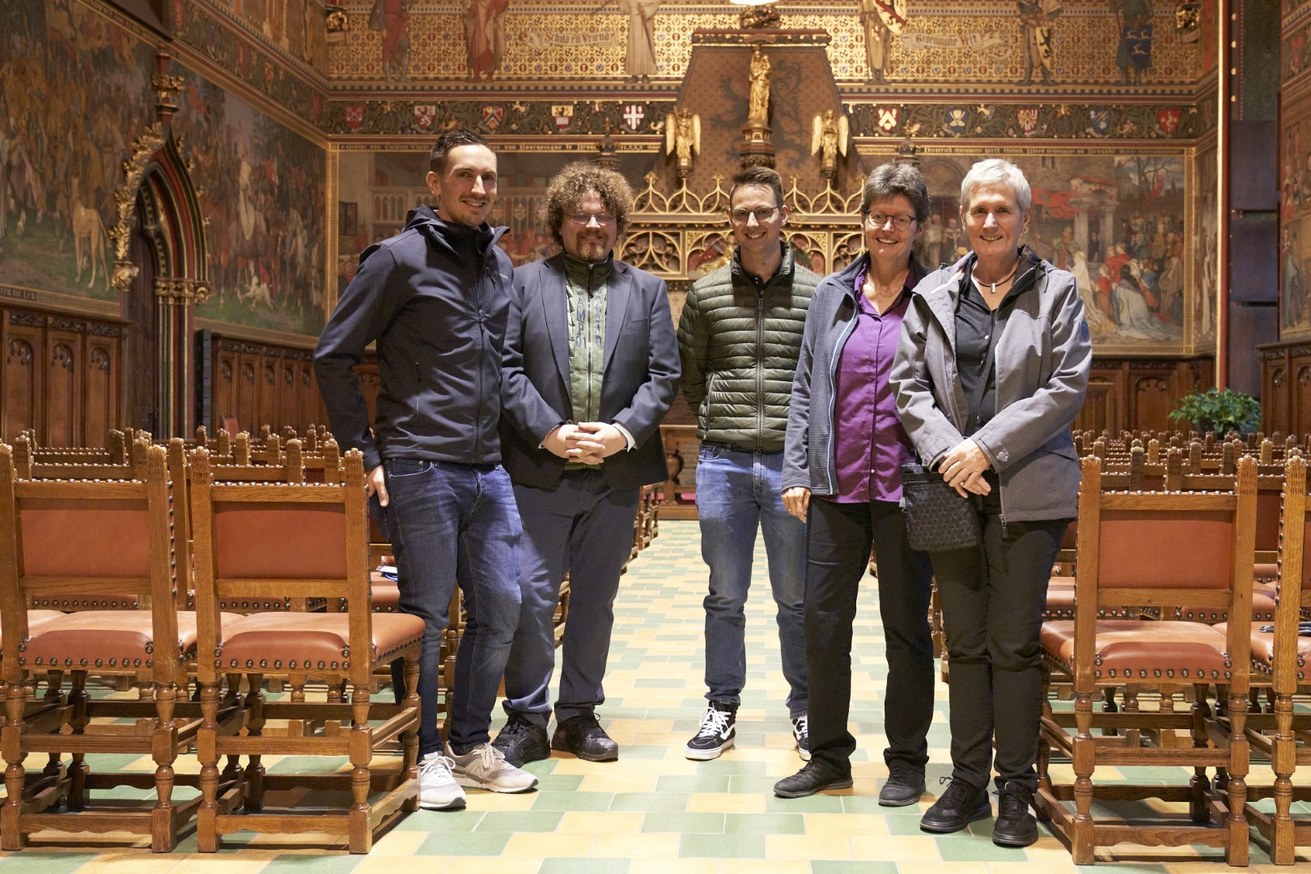UNIVERSITY OF KOBLENZ
Universitätsstraße 1
56070 Koblenz

After a very long time of online video conferences and online meetings, we finally had the opportunity to attend a physical conference again! Petra Schubert, Susan Williams, Söhnke Grams, Martin Just and Julian Mosen took the long way to Bruges in Belgium to attend the annual conference of the ENGAGE User Group. Theo Heselsmans, Chair of the ENGAGE User Group, invited participants to the brand-new Bruges Meeting & Convention Centre (BMCC) and prepared an impressive agenda with lots of great speakers from all over the world.
Our CEIR team was of course part of the great speakers and we presented two sessions: In the first session, Sue and Julian looked at the challenges of the long-term management of workspaces and collaborative content across their entire lifecycle from creation to destruction. How these challenges can be addressed, was shown with the help of an application we developed to support our team with the long-term management and persistent access to important online content. This application and a social bot called “Wiki Replicator” helps our team to keep track of wikis in HCL Connections. The session was concluded with a lively, interactive audience discussion about other participants experiences and their organisation’s requirements for support for the long-term management of digital workspaces and collaborative content.
In our second session, Petra, Martin and Julian looked under the hood of Enterprise Collaboration Platforms and showed that they are typically huge collections of multiple, heterogeneous software tools from different software vendors. This is a problem when it comes to our research that analyses user activity across these different tools because there is no harmonised format for the storing of content and the logging of user events. To address this problem, we took a deep dive into the structure of content and the format of logfile data in HCL Connections and other collaboration software. We presented an approach for cross-system analysis of user activity that makes use of our ontologies (SocDOnt and ColActDOnt) that allow us to harmonise event logs from different sources. The presentation generated a lot of interesting discussion and ideas about the potential and usefulness of having such a harmonised format. For deeper insights into the onotolgies, those can be found here: w3id.org/SocDOnt and w3id.org/ColActDOnt.